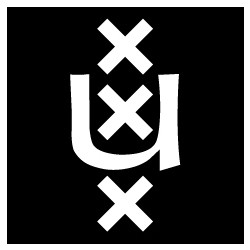
|
IOC - ICT for Research Committee.
|

|
|
|
|
Purpose
This page explains the IOC committee charter and operation.
Introduction
We want an
organization that ensures that researchers have access to a digital
environment that really helps them move forward in what they are doing
now and in the future. We do this by challenging each other with
inspiring ideas and plans and making the best possible choices. And, by
bridging the gap between faculties and services at all levels.
Digitization is not an isolated activity of an ICT department or staff
department, it is part of everyone's work. And that requires ownership
of the digital agenda in various places in the organization, including
in the education and research organization.
The following vision has been included in the research vision about
the role of ICT in research: An important development is the ongoing
digitization of our society. The explosive increase in digital data
("data explosion") poses new questions and challenges to science. The
enormous amount of (open) data, for example, offers new opportunities to
conduct research. At the same time, science is needed to use that data
in a meaningful way. There is a great need for models, methods and
techniques to unlock, search, analyze and visualize the amount of data.
In addition, new methods are being developed, such as artificial
intelligence (Artificial Intelligence, AI), that (may) influence the way
we conduct research. While ICT is mainly seen as supporting, the above
developments show that ICT creates new possibilities for research. The
influence of the data explosion and new methods, such as AI, potentially
have a major impact on research in certain areas. The UvA will have to
relate to this.
Charter
The ICT for Research Committee (IOC) provides solicited and
unsolicited advice to the UOC and the ICT Steering Group with regard to
the digital agenda, the multi-year implementation plan (priorities,
innovation proposals) and ICT-related topics in the research domain. The
committee involves national and international developments in its
advice. The committee draws up a digital draft agenda supported by IM
and AcZ and involves relevant stakeholders. The digital agenda and the
multi-year plan are ultimately determined by the Executive Board. The
ICTS and UB services are responsible for the implementation of the
multi-year plan. Implementation is monitored by the Information
Management (IM) policy department.

Committee composition:
- The Executive Board appoints the chair.
- The chair is a agenda member of the UOC and a member of the Regiegroep ICT.
- The members are nominated by the deans. Faculties can supply one
or two members. Profile of the members: Established scientists with an
important ICT component in their research and with a broad strategic
vision on the application aspects of ICT in their discipline and beyond.
- The UB service is a permanent member. The member is nominated by the director of the service.
- The Open Science coordinator is an agenda member.
- The ICTS service is agenda member. The member is nominated by the director of the service.
- The committee can be expanded to include agenda members of the AUAS.
- The committee is supported by the management staff (IM and AcZ).
Committee
The IOC menbers are:
Related Information



